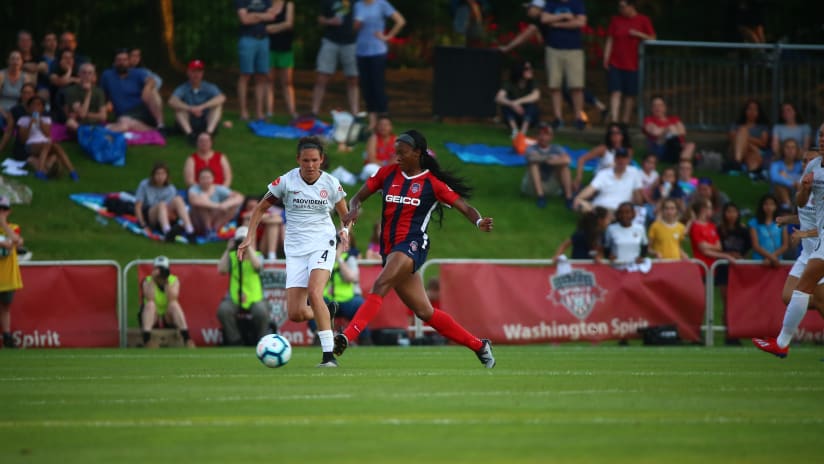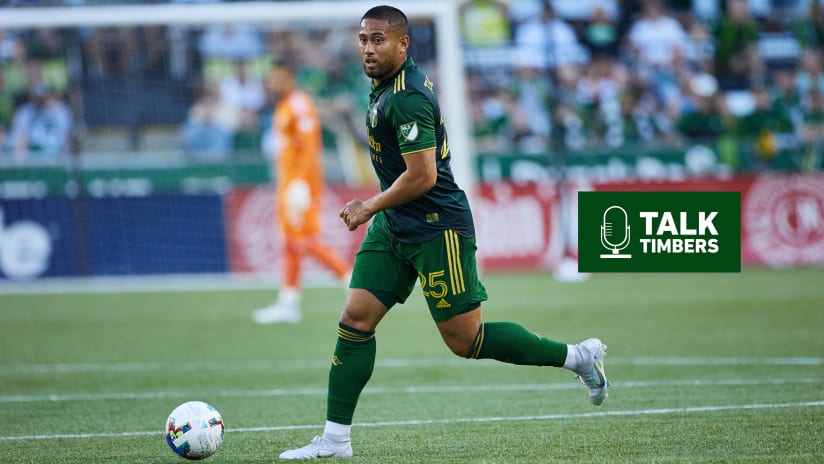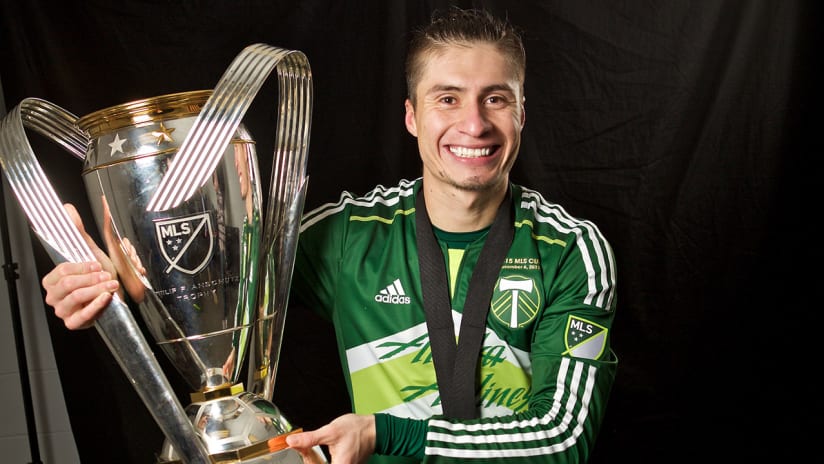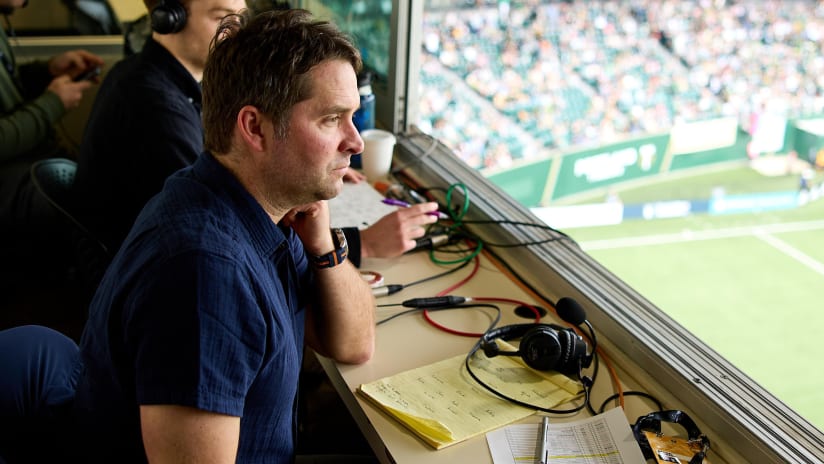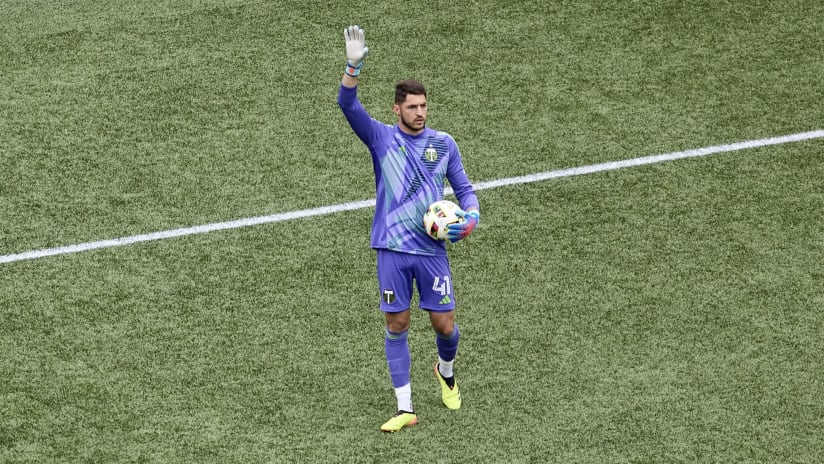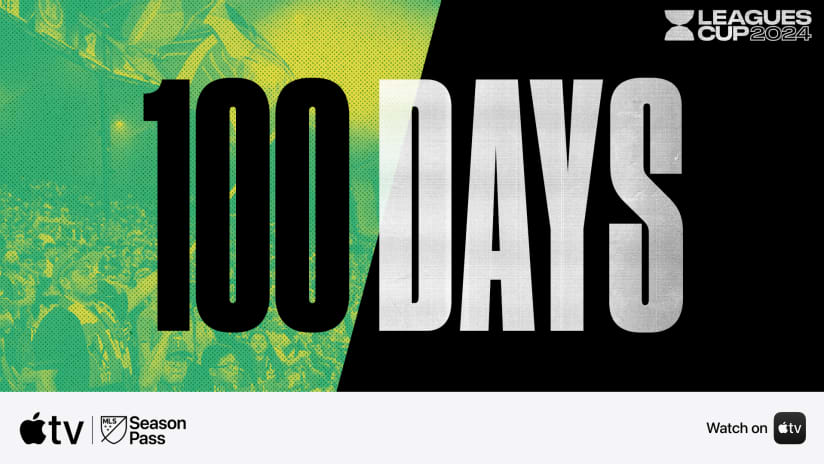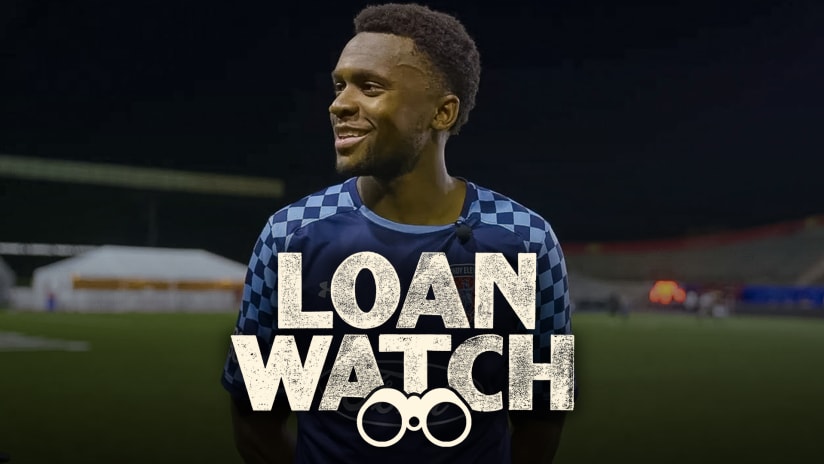From one point of view, Portland Thorns FC's performance on Saturday in Boyds, Maryland, reflected a team that’s endured over a month of games on the road, one that’s spent the last 10 days living out of suitcases in hotels. Though that lifestyle hadn’t hurt Portland before their match against the Washington Spirit, game five of the season cast the Thorns a step slower than their opponents in key moments, and consistently a moment too late in finding solutions close to goal. If you’re inclined to see Saturday’s game in terms of what the Thorns could have done, the day’s 3-1 loss, Portland’s first of the 2019 season, was about the margins in which the team failed to excel – the type of margins that become obstacles while enduring life on the road.
From another point of view, the game was a proof of concept for the Spirit, a team that looked nothing like the group that struggled to an eighth-place finish last season. Purposeful in their passing and willing to work to take advantage of what appeared to be superior athleticism, Washington cast itself as team ready to take significant steps forward. Saturday’s result may less about a favorite’s failures than an underdog that shouldn’t be perceived as such.
“They played well, and they deserved the positive result,” Thorns head coach Mark Parsons said after the game. “They were a good organized team, and they were effective.”
In terms of his team’s play, Parsons saw a lot of positives, too, with the Spirit better in two specific parts of the field.
“For me, the area that they were most dominant was inside the 18s, defensively and offensively,” he said. “Between the 18s, it’s hard for us to be too disappointed with too much, because I thought we were good with and without the ball between (the 18s), it was just inside that was the problem.
“I’m staring at myself wondering how we don’t score, how we don’t put the final ball for us to create a chance in restarts and in open play. And it was only on their goals, their goal scoring opportunities, that I thought that they were going to get a look.”
Almost any soccer game can be seen as six of one, a half-dozen of the other when it comes to credit and fault, but within those views the performance of Spirit midfielder Andi Sullivan has to be acknowledged; as does the work Washington forward Cheyna Matthews put in attacking channels; while their teammates’ confidence and ability to execute meant that, except for a small Thorns surge in the second half, the Spirit were slightly better throughout.
“I thought we put a lot of effort, a lot of work into the game,” Parsons said. “We just lacked some bite inside our 18. and we lacked some quality in their 18.”
This is the reality of the NWSL, one too many reduce to a league of haves and have nots. Even here, on this site, we tend to treat teams like Portland, the Chicago Red Stars and North Carolina Courage as a class apart, largely because of the talent those three offer. But in the finishing of forward Ashley Hatch, the continued improvement of goalkeeper Aubrey Bledsoe, and the potentials flashed by players like centerback Samantha Staab and midfielder Jordan DiBiasi, a rebuilt Spirit brought truth to a cliché commonly cast on the NWSL: that even teams who aren’t title contenders can, weekend after weekend, offer a challenge.
As 2019 unfolds, speaking of the Spirit as if they’re a plucky, feel-good upstart may prove patronizing. After Saturday’s win, they’re 3-1-1 on the season, and in the standings, they temporarily sit above all of Chicago, North Carolina and Portland. If this start persists, though, other clichés about the NWSL’s depth will begin playing out. You can’t play like a team that’s spent over a month on the road and expect to get results. In a league with this depth, you have to be able claim points when you’re not allowed to play like yourselves. When corner kicks turn into own goals or olimpicos, as happened for Washington’s second and third goals, you still have to find a way to respond.
For a brief spell in Saturday’s second half, the Thorns did respond, using Caitlin Foord’s third goal of the season to get back within one in the 67th minute. In pulled jerseys that went unnoticed or two-handed shoves that went unpunished, there is room for complaint, too, or space to think Portland was hard done. Ultimately, though, there were too few good chances, too much uncertainty on second-half corners, and too many things that Washington did well.
The rest of the league should take notice. The Thorns certainly will. In the days to come, as the team’s coaching staff dissects the film, they’ll notice all the opportunities that could have been, and the assignments that should have been picked up. But they will also undoubtedly notice that Washington appears to be greatly improved. When the teams meet again in August, Portland will have to be improved, too.

